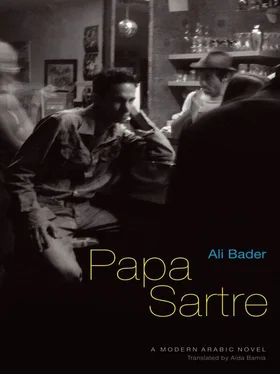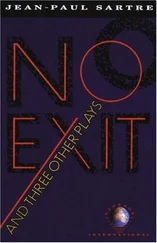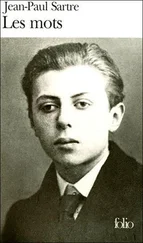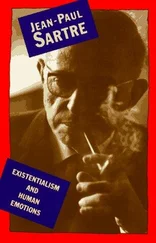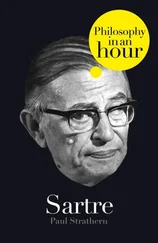This feeling of nausea was a great mystery to his contemporaries. It mellowed every one of his emotional reactions, which were otherwise characterized by roughness and gibberish. Philosophy was Abd al-Rahmans’s aim, the philosophy he sought and enthralled him. He considered the waiting time for the realization of this objective a philosophical waiting rather than a spontaneous moment. His description of that moment was of a philosophical nature rather than a metaphysical philosophy, one that brought elevated concepts down to earth. It was a philosophy that intermingled with existing earthly matters.
Abd al-Rahman saw the change of seasons as nihilistic, as he observed trees losing their leaves, soft and shiny flowers falling to the ground at the slightest touch, petals spreading over the pond, and the reflection of their color in the glass window. Each of those natural occurences had a nihilistic dimension that, since he married Germaine and moved with her into this big house overlooking the souk, manifested itself every day in spring. It appeared in the space between the branches and the sky, between the high and the low, and after a light rain.
He considered the catkin the most beautiful flower on earth because of all flowers — roses, white and lavender lilacs, and jasmines — it was only the catkin that helped him experience an even deeper nausea. He had a special affection for catkins and defined them in philosophical terms, “the catkins were existential flowers before existential philosophy itself came to be.” The flower allowed him to perceive the nihilism of existence that emerged along with the appearance of humanity. He used to ask the gardener for a sprig that he would keep in his room to ensure that he would always feel nauseated, even in his dreams. He dreamed his garden was filled with them or that they wrapped around the fence. He would stare at them in his sleep and feel such a strong, painful desire he was moved to shout out loud.
The philosopher liked many things, especially those that enhanced his nausea, such as fresh cream covered with cherry jam. He liked it and ate it almost every day. The combination of the two colors, white and dark red, reminded him of the color of the wine that Jean-Paul Sartre used to drink on Saint-Germaindes-Prés. This delicious similarity contributed to his understanding of Sartre’s mood. It gave him a memory of gluttonous existentialism, suitable for a man who loved food, drink, and good health.
Abd al-Rahman’s existentialism was earthy, organized, and spontaneous. It led to the perfection of the self, not its degradation, to the elevation of the soul, not its destruction. Existentialism provided him with the best in life, a wonderful time, unique moments, and total and complete pleasures. His might be described as a lustful existentialism, whose nausea engendered life, not death and suicide. It led to heavy and delicious meals, crazy nights of drinking, and pulling his mistress’s hair while removing her lace panties. It inspired him to cheer and shout like common people.
Abd al-Rahman’s existentialism was limitless; it transcended all boundaries. His nausea contained an unbelievable sweetness, irresistible desire, and ineffable rejoicing. He acted a bit strange in his nauseated condition: he would slump onto a carriage driver, fall heavily on the seat, roll over into the stagnant water of the sidewalk, or fall from his bed or in the garden. He did not need to be artificially elevated to experience this happiness, which is purer than any joy. He needed a great spontaneity to know this happiness. He believed that there were two types of threats to the mind: external events that might hamper the progress of nausea and internal matters that caused him to forget, even for a second, the nausea.
During a bout of heavy drinking he might forget to express himself and tell those around him that he suffers from what philosophy refers to as nausea. Once he recovered from his drunkenness, most often in his room, and remembered, it would be too late. His mood would darken, and he would become angry with himself because he had failed to detect his nauseated state as it happened and thus had lost it. There were occasions when Abd al-Rahman forgot to express this feeling clearly, and he felt it slip away. In fact, it was the philosopher himself who sometimes neglected this feeling once he became absorbed in and crushed by worldly matters. He allowed himself only a minimum amount of worry about experiencing an anxious, dazed happiness caused by some accidental event. The happiness he experienced was most likely the result of pure nervousness, a condition that made it impossible for him to capture the feeling during moments of intense and total enjoyment. Thus the eternal feeling of nausea became a temporary one, while the philosopher preferred a timeless nausea, as did existential thought. This fleeting, beautiful, nauseating moment melted too fast, like butter in seawater, whereas the philosopher would have liked it to be everlasting, eternal. He often said to Ismail Hadoub, “What if man stayed in a state of nausea from birth to death?” Hadoub was surprised and asked, “How could that be?” and wrote down the philosopher’s reply.
In response to Hadoud’s astonishment, Abd al-Rahman offered a lengthy explanation, “For example, drinking brandy like this excellent vintage, or smoking Dutch tobacco like the fine stuff I have now in my pipe, or resting on the chest of a woman like Dalal (whose breasts protrude like two blown balloons), then experiencing a high and permanent degree of nausea. Drinking, smoking, and resting on a woman’s chest until death would be permanent nausea, a moment fixed in time while the world goes forward. This would mean the actualization of a complete existentialism, and thus one would become the greatest existentialist on earth.”
As he concluded, he shook his head, threw it back in a philosophical manner, and lapsed into a state of anxious silence. His words touched Ismail Hadoub deeply. “This is what escaped Sartre. He didn’t pay attention to it, isn’t that so?”
“No, he did not,” Abd al-Rahman replied, “but I would like to transmit my thoughts to those who worship existentialism. I would like to introduce them to my existential thinking because existentialism is an open pleasure, a general one, not individual or selfish. In other words it is a selfish pleasure made for others to enjoy. We will establish an Arab existentialism with its own character. We want to promulgate it and distinguish it from western existentialism as Sartre defined it.”
Ismail Hadoub rushed to write down these complex comments, words that were incomprehensible to him, puzzling philosophical declarations. They didn’t require proof; they were self-explanatory through their complexity alone. Ismail understood philosophy as something that was impossible to understand, which explained the attractive and fascinating nature of Abd al-Rahman’s words. He used to utter incomprehensible and unknown words that gave him certain superiority over his peers. He was lost in a philosophical fog, and through it was able to achieve success. The situation reassured the philosopher’s parents, but he was concerned with his own personal fate. He knew that his ability to express mysterious ideas gave him the power to control weak characters even if stronger minds denounced him. He masked his position with the excuse that our society was not philosophical.
Ismail Hadoub wrote down everything the philosopher said. He didn’t want to lose a single word. He was the only one convinced that Abd al-Rahman was a giant thinker who deserved to be believed and followed. He was a philosopher, and Ismail was devoid of philosophy; he was wealthy and could spend money, whereas Ismail was poor and couldn’t find anything to eat. Abd al-Rahman resembled Sartre, but Ismail did not; he looked like himself. Abd al-Rahman was married to Sartre’s cousin, but Ismail was a single man hunting for a rich wife.
Читать дальше
